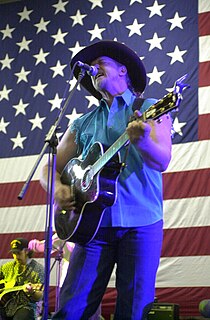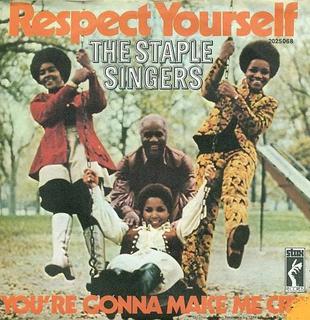Related Research Articles

What's Going On is the eleventh studio album by American soul singer Marvin Gaye. It was released on May 21, 1971, by the Motown Records subsidiary label Tamla. Recorded between 1970 and 1971 in sessions at Hitsville U.S.A., Golden World, and United Sound Studios in Detroit, and at The Sound Factory in West Hollywood, California, it was Gaye's first album to credit him as a producer and to credit Motown's in-house studio band, the session musicians known as the Funk Brothers.

"Unchained Melody" is a 1955 song with music by Alex North and lyrics by Hy Zaret. North wrote the music as a theme for the prison film Unchained (1955), hence the song title. Todd Duncan sang the vocals for the film soundtrack. It has since become a standard and one of the most recorded songs of the 20th century, most notably by the Righteous Brothers in 1965. According to the song's publishing administrator, over 1,500 recordings of "Unchained Melody" have been made by more than 670 artists, in multiple languages.

"Ode to Billie Joe" is a song by American singer-songwriter Bobbie Gentry released by Capitol Records in July 1967, and later used as the title-track of her debut album. Five weeks after its release, the song topped Billboard's Pop singles chart. It also appeared in the top 10 of the Adult Contemporary and Hot R&B singles charts, and in the top 20 of the Hot Country Songs list.

"Summertime Blues" is a song co-written and recorded by American rock artist Eddie Cochran. It was written by Cochran and his manager Jerry Capehart. Originally a single B-side, it was released in August 1958 and peaked at number 8 on the Billboard Hot 100 on September 29, 1958, and number 18 on the UK Singles Chart. It has been covered by many artists, including being a number-one hit for country music artist Alan Jackson, and scoring notable hits in versions by Blue Cheer, The Who, and Brian Setzer, the last of whom recorded his version for the 1987 film La Bamba, in which he portrayed Cochran. Jimi Hendrix performed it in concert.

"I Will Survive" is a song by American singer Gloria Gaynor, released in October 1978 as the second single from her sixth album, Love Tracks (1978). It was written by Freddie Perren and Dino Fekaris. A top-selling song, it is a popular disco anthem, as well as being certified Platinum by the Recording Industry Association of America (RIAA).

The Bellamy Brothers are an American pop and country music duo consisting of brothers David Milton Bellamy and Homer Howard Bellamy, from Dade City, Florida. The duo had considerable musical success in the 1970s and 1980s, starting with the release of their crossover hit "Let Your Love Flow" in 1976, a number one single on the Billboard Hot 100.

"Flowers on the Wall" is a song made famous by American country music group The Statler Brothers. Written and composed by Lew DeWitt, the group's original tenor vocalist, the song peaked in popularity in January 1966, spending four weeks at number two on the Billboard magazine Hot Country Singles chart, and reaching number four on the Billboard Hot 100 chart.

"Achy Breaky Heart" is a song written in 1990 by Don Von Tress. First released in 1991 by the Marcy Brothers with the title "Don't Tell My Heart", it was later recorded by Billy Ray Cyrus and released on his debut album Some Gave All in 1992. The song is Cyrus' debut single and signature song. It became the first single ever to achieve triple platinum status in Australia and also 1992's best-selling single in the same country. In the United States, it became a crossover hit on pop and country radio, peaking at No. 4 on the Billboard Hot 100 and topping the Hot Country Songs chart, becoming the first country single to be certified platinum since "Islands in the Stream" by Kenny Rogers and Dolly Parton in 1983. The single topped in several countries, and after being featured on Top of the Pops in the United Kingdom, peaked at No. 3 on the UK Singles Chart. It was Cyrus' biggest hit single in the U.S. until he was featured on "Old Town Road" by rapper Lil Nas X, which peaked at No. 1 on the Billboard Hot 100 27 years later.

"The Night the Lights Went Out in Georgia" is a Southern Gothic murder ballad, written in 1972 by songwriter Bobby Russell and first recorded by his then wife, singer, comedian, and actress Vicki Lawrence. Lawrence's version, from her 1973 album of the same name, went to number one on the US Billboard Hot 100 main chart after its release. Of several cover versions, the one recorded by Reba McEntire for her 1991 album For My Broken Heart peaked at number 12 on the Hot Country Songs chart.
"Desperado" is a power ballad by the American rock band the Eagles. The track was written by Glenn Frey and Don Henley and appeared on the 1973 album Desperado as well as numerous compilation albums. Although it was never released as a single, it became one of Eagles' best-known songs. It ranked No. 494 on Rolling Stone's 2004 list of "The 500 Greatest Songs of All Time".

"I Got You Babe" is a song performed by Sonny & Cher and written by Sonny Bono. It was the first single taken from their debut studio album Look at Us. In August 1965, their single spent three weeks at number one on the Billboard Hot 100 in the United States where it sold more than one million copies and was certified Gold. It also reached number one in the United Kingdom and Canada.

"Graceland" is the title song of the album Graceland, released in 1986 by Paul Simon. The song features vocals by The Everly Brothers.
"By the Time I Get to Phoenix" is a song written by Jimmy Webb. Originally recorded by Johnny Rivers in 1965, it was covered by American country music singer Glen Campbell on his album of the same name. Released on Capitol Records in 1967, Campbell's version topped RPM's Canada Country Tracks, reached number two on Billboard's Hot Country Singles chart, and won two awards at the 10th Annual Grammys. Broadcast Music, Inc. (BMI) named it the third most performed song from 1940 to 1990. The song was ranked number 20 on BMI's Top 100 Songs of the Century. Frank Sinatra called it "the greatest torch song ever written." It was No. 450 on Rolling Stone Magazine's Top 500 Songs of All Time.

"Let Your Love Flow" is the debut single by country music duo the Bellamy Brothers, recorded in the autumn of 1975 and released in January 1976. The song was written by Larry E. Williams and produced by Phil Gernhard and Tony Scotti. It became an international hit, reaching number one in several countries including the United States and Germany, while reaching the top ten in at least nine others including the United Kingdom and Australia.

Trace Adkins is an American country music singer. His discography consists of twelve studio albums and six greatest hits albums. Of his twelve studio albums, six have been certified by the RIAA: 1997's Big Time is certified Gold, as are 2001's Chrome, and 2006's Dangerous Man. His 1996 debut Dreamin' Out Loud and 2003's Comin' On Strong are certified Platinum. 2005's Songs About Me is his best-selling album, certified 2× Platinum by the RIAA. Two of Adkins' compilation albums, Greatest Hits Collection, Vol. 1 and American Man: Greatest Hits Volume II are certified Platinum

"Respect Yourself" is a song by American R&B/gospel group the Staple Singers. Released in late 1971 from their album Be Altitude: Respect Yourself, the song became a crossover hit. The Staple Singers' version peaked at No. 12 on the Hot 100, No. 2 on the Hot Soul Singles chart, and is one of the group's most recognizable hits. In 2002, the song was inducted into the Grammy Hall of Fame, and in 2010 it was ranked #468 on the Rolling Stone list of the 500 Greatest Songs of All Time, moving down 4 spots from #464 in 2004.

"I Don't Even Know Your Name" is a song co-written and recorded by American country music artist Alan Jackson. It was released in May 1995 as the fifth and final single from his album Who I Am. It reached number-one on the U.S. Billboard country charts and on the Canadian RPM Country Tracks chart. It was written by Jackson with Ron Jackson and Andy Lofton.
"You'll Never Be Sorry" is a song co-written and recorded by American country music duo The Bellamy Brothers. It was released in July 1989 as the second single from their Greatest Hits Volume III compilation album. The song reached number 10 on the Billboard Hot Country Singles & Tracks chart. It was written by David Bellamy, Howard Bellamy and Don Schlitz.
"I Could Be Persuaded" is a song co-written and recorded by American country music duo The Bellamy Brothers. It was released in June 1990 as the first single from the album Reality Check. The song reached number 7 on the Billboard Hot Country Singles & Tracks chart. It was the duo's last Top 10 hit. It was written by David Bellamy, Howard Bellamy and Don Schlitz.
"Rose Garden" is a song written in 1967 by American singer-songwriter Joe South. It was first recorded by Billy Joe Royal on his 1967 studio album Billy Joe Royal Featuring "Hush". Versions by South himself and Dobie Gray appeared shortly after the original. Gray's version became a minor hit in North America in 1969.
References
- ↑ The Bellamy Brothers Chart History
- ↑ "RPM Country Tracks". Archived from the original on October 20, 2012. Retrieved October 31, 2010.
- ↑ "100 Greatest Country Songs of All Time". Rolling Stone . June 2014.
- ↑ Johnson, Karen (May–June 1995). "The Bellamy Brothers: Snake Rattle & Roll". Tampa Bay Magazine. 10 (3): 51.
- ↑ "The Bellamy Brothers Chart History (Hot Country Songs)". Billboard.
- ↑ "Hot Country Songs – Year-End 1985". Billboard. 2 January 2013. Retrieved June 10, 2021.